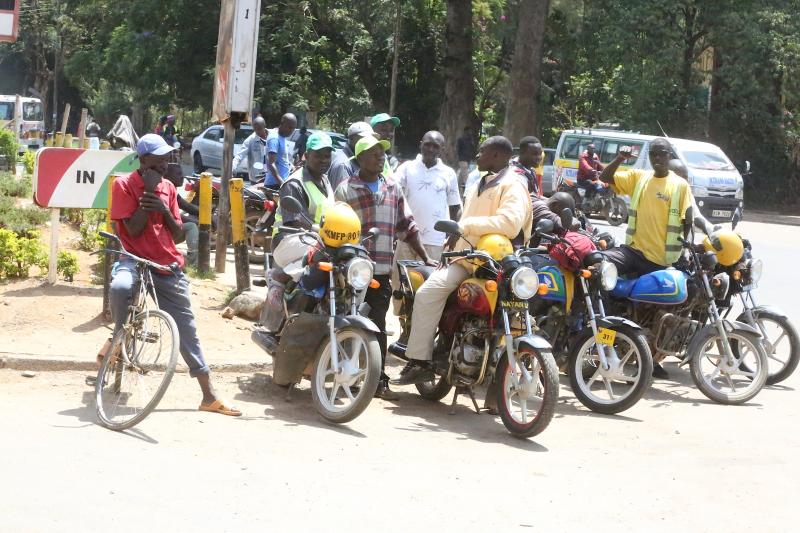×
The Standard e-Paper
Home To Bold Columnists

Kakamega boda boda operators wait for customers at their Equity bank stage on March 13, 2022.[Benjamin Sakwa, Standard]
Boda boda riders across the country are rational beings, like all of us. They wake up in the morning, get on to their motorbikes and head to their workstations. They are in business like anyone of us. At the end of the day they head back home with or without some business transacted, again like it happens to any other businessperson. Not all days are productive.